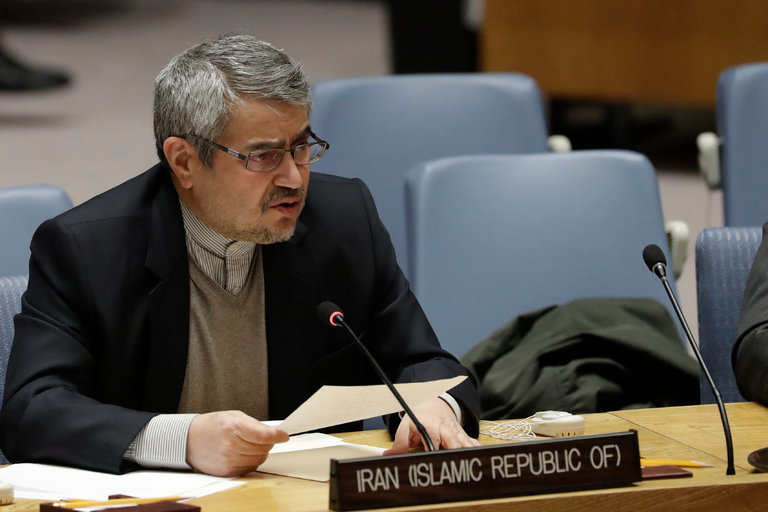Iran reprimands attacks on medical workers, humanitarian staff

Iran’s Ambassador to the UN condemned on Thursday attacks on medical and humanitarian staff, facilities and means of transport throughout the world especially in Palestine, Afghanistan, Yemen and Syria.
“These attacks are taking place in various places around the world, but in terms of frequency and ferocity, such attacks in the Middle East are more prevalent,” Gholamali Khoshroo told a UN Security Council open debate on protecting civilians and health centers in armed conflicts.
Following is full text of his speech published by IRNA:
Allow me to begin by thanking the Uruguayan Presidency for convening this open debate. I would also like to express my gratitude to the briefers for their valuable inputs in this debate.
I align myself with the statement by the distinguished Permanent Representative of Venezuela on behalf of NAM.
Unfortunately, the issue of the protection of civilians, including their healthcare, in armed conflict, continues to be a recurring tragedy in our time. Mindful of the special significance of medical facilities and the danger their personnel face during conflict, the Security Council adopted resolution 2286 (2016) in response to concerns about attacks and threats against hospitals and other medical facilities, medical personnel and humanitarian personnel.
Attacks against medical workers and facilities as well as the humanitarian convoys delivering medical supplies, have increased since the adoption of the resolution. Only in 2016, attacks on health care facilities, health workers, ambulances and patients has occurred in 23 countries under these conditions. These attacks are taking place in various places around the world, but in terms of frequency and ferocity, such attacks in the Middle East are more prevalent.
We condemn all the attacks that have taken place against medical and humanitarian staff, facilities and means of transport throughout the world especially in Palestine, Afghanistan, Yemen and Syria.
It is difficult to understand how it is possible that, at a time of high-tech and high precision modern bombs, “mistakes” could happen so frequently targeting medical facilities and personnel in areas of armed conflict. Hospitals are public facilities, whose locations are well known by all parties to the conflict and necessary protocols are in place to avoid bombing them. Unfortunately, such incidents keep occurring and the perpetrators continue to claim that they are simply mistakes.
The tragedies, such as the bombing of the Médecins Sans Frontières hospital in Kunduz, Afghanistan in October 2015, declared as mistake and ended without any military personnel involved being convicted.
Only in 2016, the Palestinian Red Crescent society has reported 416 instances of violence or interference with its ambulances by Israeli Forces or settlers, injuring 162 emergency workers, damaging 108 ambulances and denying access to healthcare in 146 cases. This is on top of the illegal blockade against the Palestinians that has continued for more than a decade, denying them their basic human rights, including access to healthcare, by the Israeli regime, all unabated.
The Saudi led aggression in Yemen since March 2015, has led to many well documented war crimes, including the destruction of much civilian infrastructure, including medical facilities and this aggression continues unabated under the watch of this Council. Worse even, this unfortunate misadventure is enjoying the ever increasing military, logistical and training support of the United States and its air force.
There needs to be greater efforts to document and analyze all incidents that affect the security and wellbeing of health-care workers and facilities, and ensure that impartial, independent and prompt investigations are carried out and that those who are found to be perpetrating such acts are brought to justice. This Council must abandon its double standards when it comes to bombing humanitarian and health facilities and workers. By highlighting some attacks and remaining silent on others, the Council discredits its own resolutions, especially 2286.
I would like to conclude by expressing my tribute to the valuable work carried out by the many health care teams that carry out their work in the context of armed conflicts.
Leave a Comment